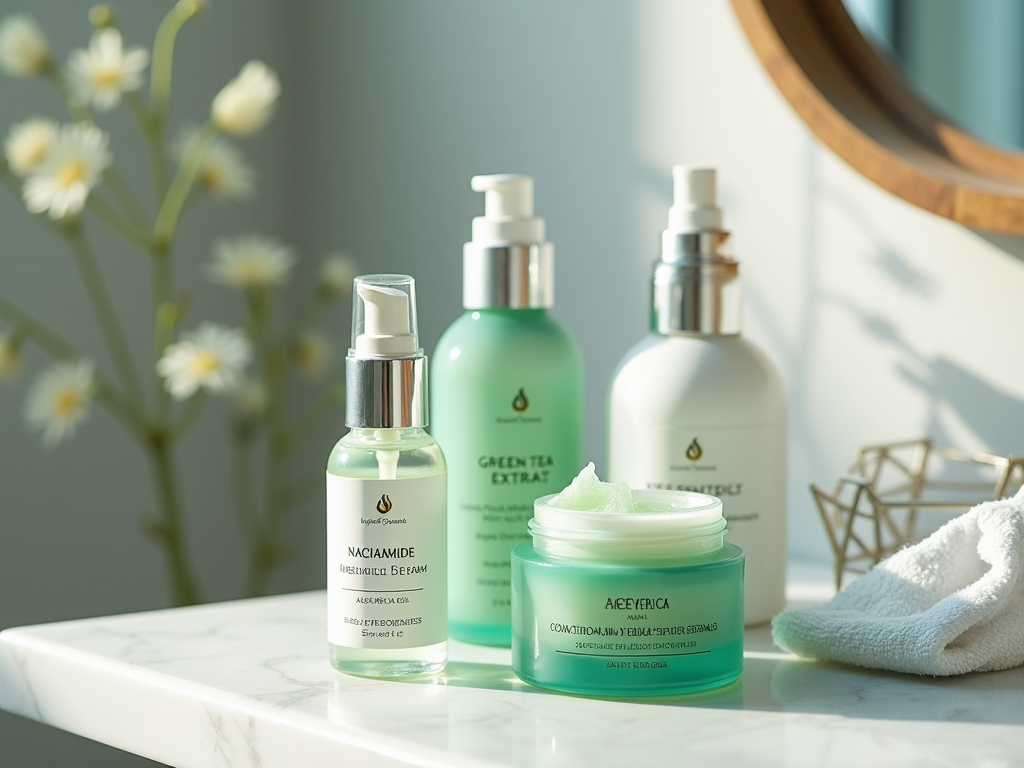If you’ve noticed unwelcome redness interrupting your complexion, you’re not alone. Skin redness is a common issue that can stem from various causes, but the good news is it can often be managed effectively. Specialists have mastered various techniques to help you sooth and diminish the redness. Understanding the root cause and applying targeted solutions is your path to clearer, calmer skin.
Understanding the Causes of Skin Redness

Redness on your skin can be the result of several factors, from environmental influences to underlying health conditions. Recognizing these triggers is crucial. Common causes include sun exposure, harsh skincare products, rosacea, eczema, and even stress. Allergic reactions and dietary choices can also contribute to facial redness. By pinpointing the cause, you can choose suitable treatments to lessen the appereance.
Topical Treatments to Combat Redness

Once you’ve identified the cause, selecting appropriate topical treatments is essential. Many skincare products are specifically formulated to address redness. Key ingredients to look for include:
- Niacinamide – Known for its anti-inflammatory properties.
- Aloe Vera – Soothes and calms irritation.
- Green Tea Extract – Reduces redness with its antioxidant properties.
- Azelaic Acid – Ideal for combating rosacea and redness.
- Licorice Root Extract – Helps lighten redness and even out skin tone.
Regular use as part of your skincare routine can significantly improve your skin’s appearance over time.
The Role of Diet in Reducing Skin Redness
Your diet plays a pivotal role in your skin’s health. Consuming anti-inflammatory foods can help reduce redness. Focus on integrating foods that contain omega-3 fatty acids, such as salmon and walnuts. Vitamin C-rich foods like oranges and strawberries can enhance collagen production and reduce inflammation. Limiting intake of spicy foods, alcohol, and caffeine is also beneficial, as they can trigger flare-ups. All these adjustments in your diet can contribute to healthier, blemish-free skin.
Professional Treatments for Persistent Redness
When topical solutions and diet modifications are not enough, professional treatments can offer a more effective solution. Dermatologists often recommend treatments such as:
- Laser Therapy – Targets and reduces visible blood vessels.
- LED Light Therapy – Helps improve skin tone and texture.
- Chemical Peels – Removes dead skin and promotes healthy skin growth.
Consultation with a skincare professional can help you determine the right course of action depending on your skin type and specific concerns.
Lifestyle Habits to Support Skin Health
Adopting healthier lifestyle habits can have a profound impact on your skin’s appearance. Regular exercise promotes circulation and can improve your overall skin tone. Adequate hydration is critical, so aim for at least eight glasses of water a day. Protecting your skin from sun damage by wearing sunscreen daily cannot be overstated. Lastly, stress management through activities such as yoga or meditation can reduce stress-induced redness, supporting overall skin wellness.
Conclusion
Reducing skin redness is a comprehensive endeavor that requires attention to skincare, diet, professional advice, and lifestyle adjustments. By understanding the underlying causes of redness and implementing these strategies, you can achieve a clearer, soothed complexion. Keep in mind that patience and consistency are essential in your skin care regimen. With the right approach, you can effectively manage and reduce skin redness.
Frequently Asked Questions
1. What is the immediate remedy for reducing skin redness?
Applying cold compresses can provide immediate relief. Aloe vera gel can also cool and soothe the skin quickly.
2. How can I prevent skin redness from occurring?
Regular use of sunscreen, gentle skincare products, and maintaining a soft-touch routine are preventative measures. Avoid known triggers such as allergenic cosmetics.
3. Can makeup help cover up redness?
Yes, green-tinted concealers or primers specifically designed to neutralize redness can be effective when applied under your foundation.
4. Which professional should I consult for chronic skin redness?
A dermatologist is the best professional to consult for chronic redness. They can provide diagnoses and recommend targeted treatments.
5. Are natural remedies effective in reducing redness?
Natural remedies like chamomile or oatmeal masks can help, but results vary. It’s always good to patch test and consult with a dermatologist for advice tailored to your skin.





